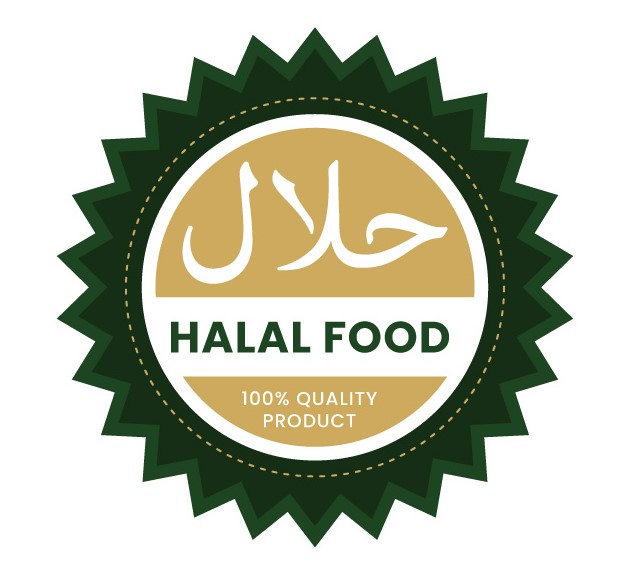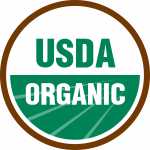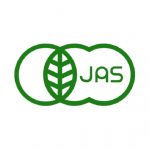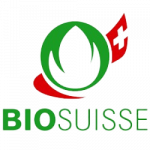
What does the word Halal mean?
The word “Halal” comes from the Arabic language and translates to “permissible” or “lawful“. It is used primarily in the context of Islamic law (Sharia) to denote things that are allowed for Muslims to consume, use, or do. The opposite of Halal is “Haram,” which means “forbidden” or “unlawful.”
Here are some key points about the concept of Halal:
- Religious context: It is important to understand that Halal primarily applies to Muslims in the context of their religious beliefs and practices.
- Broader application: While often associated with food, the concept of Halal encompasses various aspects of life, including food, drink, clothing, finance, and behavior.
- Specific guidelines: Specific guidelines and principles determine what is considered Halal based on Islamic teachings and interpretations.
- Certification process: Halal certification helps verify that a product or service complies with these guidelines, offering assurance to Muslim consumers.
If you’d like to learn more about the specific guidelines or applications of Halal across various aspects of life, feel free to ask further questions.
What is Halal Certification?
Halal certification is applicable to the food, cosmetic, and pharmaceutical industries. It certifies that a product is made entirely in accordance with Islamic Law, that it contains no “forbidden” ingredients, and that it hasn’t come into contact with any “impure” materials or objects.
For many Muslims, navigating the complexities of daily life while adhering to their faith is paramount. This includes ensuring the products and services they consume or utilize align with the principles of Islamic law (Sharia). This is where Halal certification plays a crucial role, providing a reliable and trusted symbol of compliance for Muslims around the world.
What is a Halal Certificate?
A Halal certificate is a formal document issued by a recognized certification body, verifying that a specific product or service meets the requirements of Islamic law. This signifies that the product is considered “Halal,” meaning permissible for Muslims to consume or use. Obtaining Halal certification involves a thorough and meticulous process that assesses various aspects of a product’s journey, from the sourcing of ingredients to manufacturing and storage practices.
Halal certification plays a vital role in:
- Providing assurance to Muslim consumers: It allows them to have peace of mind knowing that the products they are consuming or using are permissible according to their faith.
- Facilitating international trade: Halal certification can help businesses tap into the growing Muslim market, both domestically and internationally.
- Promoting ethical and sustainable practices: Halal guidelines often emphasize ethical treatment of animals and environmental sustainability, which can resonate with consumers of all faiths.
Why Do You Need a Halal Certificate?
There are several compelling reasons why a business might seek Halal certification:
- Meeting the Needs of Muslim Consumers: In today’s globalized world, the Muslim population represents a significant consumer base. Having a Halal certification demonstrates your commitment to catering to this specific market segment and allows them to confidently choose your products with the peace of mind that their religious values are respected.
- Gaining Market Access and Expanding Reach: Halal certification can act as a gateway to lucrative markets across the globe, particularly in regions with a high Muslim population. This broadened reach can significantly enhance your brand’s exposure and open doors to potential growth opportunities.
- Building Trust and Credibility: The Halal certification process involves rigorous inspection and adherence to established standards. Earning this certification signifies your commitment to ethical and transparent practices, fostering trust and credibility among consumers, both Muslim and non-Muslim.
- Enhancing Brand Image and Reputation: By prioritizing Halal compliance, you demonstrate your sensitivity to religious beliefs and respect for ethical principles. This can positively impact your brand image and reputation, fostering goodwill and loyalty among consumers who value such considerations.
Benefits of Halal Certification:
Acquiring Halal certification offers several advantages beyond simply meeting the needs of Muslim consumers:
- Enhanced Product Quality: The rigorous inspection process involved in Halal certification often leads to stricter quality control measures throughout the production chain, potentially resulting in improved product quality and safety.
- Transparency and Traceability: Halal certification necessitates meticulous documentation and traceability throughout the supply chain. This can provide valuable reassurance and transparency to consumers who value knowing the source and origin of their products.
- Competitive Advantage: In an increasingly competitive marketplace, holding a Halal certificate can differentiate your brand and give you an edge over non-certified competitors. This can be particularly relevant in regions with a significant Muslim population.
- Increased Export Opportunities: Halal certification simplifies the process of exporting your products to Muslim-majority countries, which often have specific regulations and requirements for imported goods.
While Halal certification offers numerous benefits, some key issues have been raised regarding its implementation:
- Lack of Standardization and Consistency:
- Global disparity: Different countries and certification bodies may have varying interpretations of Halal standards, leading to confusion and challenges for businesses seeking global reach.
- Multiple certification bodies: The existence of numerous certification bodies can create competition and inconsistency in the application of standards, potentially compromising consumer trust.
- Cost and Accessibility:
- Financial burden: The cost of certification can be a significant barrier for smaller businesses, potentially hindering wider market access.
- Limited accessibility: The complexities and resources required for the process may limit access for small and medium-sized enterprises (SMEs) compared to larger corporations.
- Transparency and Accountability:
- Concerns about transparency: In some cases, questions have been raised regarding the transparency of the certification process, with potential concerns about bias or lack of robust oversight.
- Accountability of certification bodies: The accountability of certain certification bodies has been questioned, particularly regarding their financial disclosures and potential conflicts of interest.
- Ethical Concerns:
- Misuse of certification: Concerns exist about the potential misuse of certification for marketing purposes, potentially misleading consumers or hindering fair competition.
- Impact on non-Muslim businesses: In some instances, Halal certification requirements may be seen as discriminatory against non-Muslim businesses, hindering their ability to compete in certain markets.
It is important to note that these are complex issues with ongoing discussions and efforts to address them. Several initiatives are underway to promote greater standardization, transparency, and accessibility in the Halal certification process.
Additionally, while these issues exist, it is crucial to recognize the ongoing efforts to improve the system. Regulatory bodies, certification bodies, and industry players are continuously working towards enhancing transparency, consistency, and accessibility within the Halal certification landscape.
Do You Need a Halal Certificate?
Whether you need a Halal certificate depends on several factors:
- Target Market: If your target market primarily consists of Muslim consumers, obtaining Halal certification is crucial to ensure their acceptance and trust in your products.
- Product Type: Foods and beverages containing ingredients specifically prohibited in Islam, such as pork or alcohol, will most likely require Halal certification. However, the need for certification can extend beyond food products to include cosmetics, pharmaceuticals, and even financial services.
- Compliance Requirements: Certain countries and regions have specific regulations and requirements for products targeted towards Muslim consumers. Researching these regulations can be crucial in determining the necessity of Halal certification for your business.
Why Choose SES for Your Halal Certification Needs?
We understand the complexities of the Halal certification process and the importance of providing our clients with:
- Expertise: Our team comprises seasoned auditors with in-depth knowledge of Islamic Law and internationally recognized Halal standards. Their experience ensures a smooth and efficient certification process.
- Transparency and Integrity: We adhere to the highest standards of transparency and ethical conduct throughout the assessment process.
- Global Recognition: As an accredited certification body, our Halal certificates are recognized and trusted by Muslim consumers worldwide.
- Tailored Approach: We understand that each business is unique, and we offer a customized approach to meet your specific needs and product types.
- Streamlined Process: We strive to make the certification process efficient and hassle-free for your business.
Is Halal Certification Used in the Cosmetic Industry?
While traditionally associated with food products, the scope of Halal certification has expanded significantly in recent years. The application of Halal principles now encompasses various industries, including cosmetics. This is because certain cosmetic ingredients, such as animal-derived products or alcohol, may be incompatible with Islamic beliefs.
For cosmetic companies, obtaining Halal certification signifies that their products adhere to strict guidelines concerning:
- Permissible ingredients: Only ingredients derived from permissible sources are used, excluding those considered haram in Islam.
- Alcohol and animal-derived products: These ingredients are strictly avoided to comply with Islamic principles.
- Manufacturing process: The production process adheres to ethical and hygienic standards in accordance with Islamic guidelines.
Conclusion
Halal certification serves as a valuable tool for businesses aiming to cater to the needs of Muslim consumers while also enhancing their brand image and competitive advantage. Understanding the process, its implications, and the potential benefits can empower businesses to make informed decisions about pursuing Halal certification and reaching new markets.
Ready to Begin Your Halal Certification Journey?
SES is your trusted partner in navigating the Halal certification process. Here’s a step-by-step guide to get you started:
- Contact Us: Schedule a free consultation to discuss your specific needs and product category.
- Application Submission: Complete our comprehensive application form, outlining your business details and product information.
- Document Review: Our team meticulously reviews your application to ensure its completeness and compliance with Halal standards.
- Facility Audit: We conduct a thorough audit of your production facilities to assess your adherence to Halal principles and hygiene practices.
- Product Testing: Depending on the product category, samples may be sent to independent laboratories for testing to ensure the absence of prohibited ingredients.
- Certification Decision: Upon successful completion of the process, a formal Halal certificate will be issued to your company.
Halal certification will fulfil your product consumer’s requirements to make a decision to buy it, So it’s an investment in your brand’s future and the trust of a vast and discerning consumer base. Contact SES today and embark on your Halal journey with confidence.
Frequently asked questions about Halal
If you are a producer who intend to register with halal specification you can easily use the next form to ask for it get in touch directly using WhatsApp.






